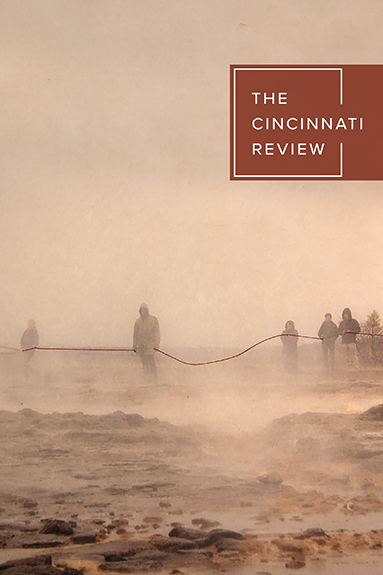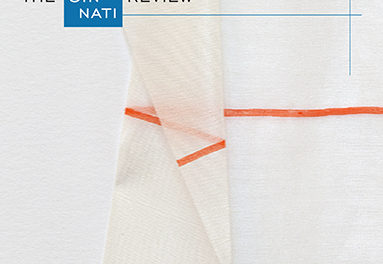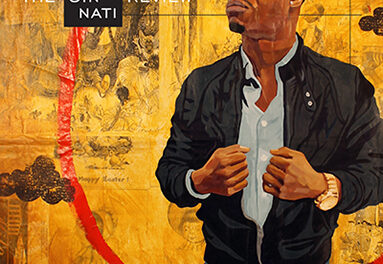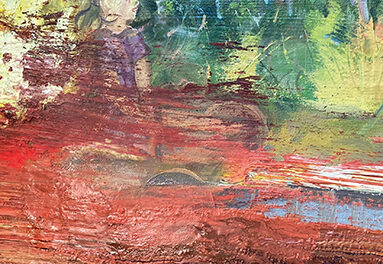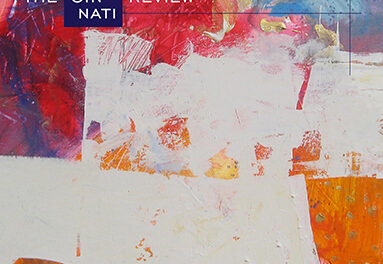Neil had volunteered to cook. Inez’s best friend, Beach, was coming in from the West Coast, and she felt he could use a home-cooked meal. Inez and Beach dated briefly in college, and while Neil hadn’t unriddled all the details of their breakup, the short of it was that they preferred each other’s company in a platonic capacity. Still, there were nights when Neil would wake to Inez sitting up in bed, stifling laughter over some meme Beach had texted at one a.m. Or Beach would mail her for no stated reason some costly trinket picked by hand. In offering to cook, Neil felt he was demonstrating his modern sensibilities. Plus, the dinner would offer him the chance to showcase the skills he had acquired in Flavors of Tuscany, an online cooking class he had taken during the early months of the pandemic.
While Inez tended to the appearance of the house, Neil concerned himself with meal preparations. He honed his Japanese nakiri knife with sharpening steel, seasoned the cast-iron skillet, and clipped from the garden rosemary and basil leaves for his mise en place. While the ground beef and pork sausage browned in the pan, he whisked together eggs and a few drops of extra virgin olive oil, then poured the eggs into a crater of flour. It was the same technique he’d been taught by his teacher, Sebastiano, who would Zoom in each week from his farmhouse in Montepulciano. Neil folded together the ingredients until they formed a firm yet pliable ball, then set aside the dough to rest.
Beach arrived several minutes after six o’clock. Inez was arranging a display of lilies in a vase when he rang the doorbell. Neil could hear her let out an audible squeal and throw herself around Beach with an alacrity that caused some flat object to belly flop onto the floor.
“Beach is here,” she called to the kitchen, where Neil was massaging a bundle of Tuscan kale.
Five or six years earlier Beach had sold for a ludicrous sum an app that connected coffee enthusiasts with small-batch roasters. Liberated from the nine-to-five grind, he now spent his days doing yoga in beer gardens and sleeping in yurts in far-flung desert landscapes.
Beach strode into the kitchen in his leather jacket, distressed jeans. He looked around the space as if weighing whether to make an offer on the property. Neil immediately felt ridiculous in his cooking apron that mimicked a bronzed and muscled body, a novelty ordered on the internet—but it was too late to change out of it.
“Look what Beach brought us,” Inez said, holding up a box of chocolate-covered cherries. The brand was one easily procured at any grocery or convenience store.
“Hey there, Neil,” Beach said, suddenly noticing Neil behind the kitchen island. “Looks like you and that kale might need a room.”
“You have to massage the kale to take the bitter edge off,” Neil said.
He noticed he was kneading the kale too hard.
“Neil recently took a Flavors of Tuscany cooking class,” Inez said.
“I was just pulling your chain, Neil. It’s really neat that you’re learning how to cook. I ought to do the same. It’s getting harder to shed the pounds from all the takeout I get.”
Beach gestured to his toned midsection.
“Don’t say that, Beach,” Inez said. “You look great. Just the same as when I saw you last. When was it? Phoenix?”
Phoenix. Neil remembered a trip Inez had taken with her sister to Phoenix several years back but didn’t recall the presence of Beach.
“I can’t believe it’s been that long.”
Beach folded his leather jacket over a barstool.
“Can I make you a Negroni, Beach?” Neil asked.
“I’d love that.”
“Inez?”
“Just bubbles for me.”
Neil dried his hands. He measured an ounce each of gin, Campari, and sweet vermouth in the Williams Sonoma jigger set Inez had bought him for his thirty-fifth birthday. He stirred the mixture in ice and then poured the chilled drink through a slotted spoon into a lowball glass. To finish, he swabbed an orange peel around the rim of the glass and deposited it in the drink.
“Do you mind if I top her off?”
Before Neil could respond, Beach reached over and seized the bottle of gin, then filled the glass to the top, diluting its vermilion color. As he poured, Neil felt an anger welling up inside him, displacing the pretense of civility.
Despite Beach’s status as Inez’s closest friend, any relationship between him and Neil had never found steady footing. The one time he and Neil had gone out for drinks together—at Inez’s insistence—Beach had struck up a conversation with a tattoo-necked bartender about home stereo systems and cut Neil out, leaving him to watch Olympic judo by himself on the host of TVs.
“Sit down, sit down.” Inez guided Beach over to the dining-room table.
“You have a real eye for design, Inez. I love how you’ve laid out the place. It’s got a real European flair.”
“A lot of that was Neil.”
“Let me guess—a Design of Tuscany class,” he said, leaning back toward Neil and chuckling.
Neil made no acknowledgment of the comment. He attempted to shift the weight of conversation away from himself, his own recreational interests.
“What’s new with you, Beach?”
“Oh, you know, same old. But I can’t really complain.”
“Are you seeing anyone right now?”
One of Beach’s previous girlfriends had competed on a reality show where aspiring models were charged with putting out wildfires. Neil had seen pictures of her on Beach’s Instagram. The two of them hiking or riding camels or lounging by the poolside. Those posts had received more likes than any of his posts ever had, even the screenshots from his cooking classes with Sebastiano.
“I’m taking a bit of a breather from the dating game,” Beach said, then paused to measure his words. “It’s tough out there right now. For men, I mean. I’m not blaming women for that. Not at all. It’s the culture. You can’t seem to say anything right nowadays. There’s no regard for free expression. Every little thing being dissected or pulled apart. Nobody can take a joke anymore. Everything is bound to offend someone. And it’s no fun being in a relationship when you’re constantly walking on eggshells.”
“Does that mean you’re not seeing—what’s-her-face—anymore?” Inez asked.
Neil was confident Inez knew the woman’s name. Both of them had scrolled through the same posts.
“Elise?”
“Yes, Elise.”
“Once the actor strikes started, she turned into a totally different person. Attending meetings every night. Waking up early every morning to join the pickets. I admired her passion. I did. But I don’t think you change things by holding up signs and yelling. There are more productive ways of getting your point across.”
Neil shaved pecorino over the dressed greens and brought the salad bowl to the dining table.
“Kale insalata.”
He gave the salad a final toss—in a manner perhaps more theatrical than intended—and then divvied up portions.
“This looks great, honey.”
“Really impressive.”
Neil took a curt bow in his burly apron.
“Hopefully next time you can treat us to some of the cuisine from your homeland,” Beach said.
“I’ll keep that in mind, Beach.”
“There’s a great Indian takeout place by my house. Best butter chicken you’ve ever had.”
“Maybe you can take us next time we’re in town.”
While Inez and Beach took their maiden bites of food, Neil turned his attention to the simmering pot of ragù, which had been cooking now for several hours. He tasted a spoonful of the sauce before adding several pinches of salt and, for good measure, a twist of the black-pepper grinder.
“How is the remodel of your place going?” Inez continued.
“The project is on hold for now,” said Beach. “To be honest, I’m not entirely sure I want to stay in the place.”
“You love that house.”
Beach paused and folded the napkin in his hand.
“I’m actually thinking about selling. It feels like time for a change in scenery.”
“Anywhere specific in mind?”
“Possibly something in this neck of the woods.”
Inez leaned forward in her chair. “Really?”
“It’s still just an idea right now.”
“That would be wonderful. We could finally take those pottery classes we’ve talked about forever.”
Neil felt a sharp twinge of jealousy. Inez had never asked him to take a pottery class—and he loved classes.
“That would be a blast, Inez.”
“You know, I’ve been thinking a lot about how I can give back more to the place that raised me? What’s the point of having all this money if you can’t give back in some way? Maybe working with a nonprofit that helps disadvantaged kids or something like that. The last few years have made me rethink my priorities.”
Neil unraveled the towel wrapped around the resting dough. He began flattening and rolling out the ball.
“You’d be so good at that, Beach,” Inez said. “I’m sure Neil could connect you with people in the nonprofit world.”
“Do you have any experience in nonprofit work?” Neil asked. For his day job he raised money for an organization that removed plastics from waterways. It was how he had met Inez: pitching her real-estate firm on a corporate sponsorship. He remembered fumbling over his words (his own name, in fact) when they first were introduced. It took him several meetings to summon the courage to ask her out for coffee at his favorite artisanal roaster.
“I don’t,” Beach said. “But I think I can get the hang of it.”
“It’s not that easy, Beach. Balancing the needs of donors and board members and staff. It takes a lot of patience.”
“I feel up for the challenge.”
“Well, I can start thinking about folks I can connect you with.”
“That’s kind of you, Neil. I appreciate it.”
Beach patted his mouth with a napkin, his salad barely touched, and rose from the table.
“Excuse me for a moment. I have to hit the head.”
He ventured down the hallway. Neil heard the bathroom fan shudder on.
Inez came over to Neil’s workspace as he was cranking dough through his professional-grade Marcato pasta maker.
“What is your problem?”
“I don’t know what you mean.”
“Asking about his nonprofit experience?”
“It was a sincere question.”
Neil adjusted the knob to further thin the dough.
“You’re talking down to him.”
“I’m talking down to him?” Neil laughed. “Have you heard how he speaks to me?”
“He jokes when he feels nervous. It’s not targeted at you. You could stand to lighten up a little bit.”
“Why do you always take his side?”
“I’m not taking his side.”
Neil sprinkled a handful of flour on the flattened sheet of dough and folded it to cut.
“Did you see what he did to my Negroni? If Sebastiano saw that—”
“Stop being so precious about your cocktails. It’s a drink.”
He worked his nakiri knife through the dough, from north to south, slicing the sheet into one-inch strands.
“I’m sorry. I hope I didn’t walk in on anything,” Beach said. Inez and Neil looked up as if caught in some collusive act. Neil felt a shooting pain and looked down to find blood spurting from his hand.
“My god, Neil.”
“It’s just a nick.”
“Your thumb—”
A tawny thumb rested imperiously on top of the pasta dough. Blood oozed from the finger onto the granite countertop.
“We have to get you to a hospital,” Beach said.
“I’m fine,” Neil said, a dizziness unsteadying his legs.
“Inez, call an ambulance.”
The order shook her out of her petrification. She took out her phone and dialed 911.
Beach grabbed a dining chair and forced Neil into it. He wrapped his hand with a kitchen towel. Neil was dazed, his face absent of feeling.
“They’re on their way,” Inez said.
“Guys, I’m fine.”
“Put the thumb on ice, Inez.”
Inez filled a wine glass with ice cubes. She pinched the foundling finger by its end, wincing, and set it on the ice.
“Someone has to stir the ragù,” Neil said. He sensed his consciousness drifting in and out like a distant radio signal.
“Stay with us, Neil.”
Beach tossed a glass of cold water on Neil’s face. His eyes sprung open. The kitchen towel around his hand was thoroughly soaked with blood.
“Sweetheart.”
“The pasta is going to clump together.”
Inez wrapped her arms around Neil’s head and pulled him toward her chest.
“Do you have any more towels?” Beach asked her.
“In the linen closet upstairs.”
Beach went to collect another towel from the closet.
“Take deep breaths, honey.”
Neil took a slow, weighted breath. Beach returned with a striped bathroom towel. He carefully unfurled the bloodied towel around Neil’s hand and replaced it with the clean one. They heard the whir of sirens in the distance.
“The ambulance is almost here. Can you help him up, Inez?”
Inez wrapped Neil’s arm around her shoulders and helped him from the chair. He could see the blood running from his toweled hand onto Inez’s blouse.
“Starry tennis.”
“I don’t know what you’re saying, honey,” she said, her eyes tearing up. “I can’t understand.”
“Your pity bless.”
“He’s just in shock, Inez,” Beach said.
He opened the door to a pair of somber-looking EMTs, who wheeled a stretcher in behind them.
“Hang in there, Neil. The hospital sent their very best professionals.”
Neil closed his eyes. He pictured himself and Inez in a sun-soaked Tuscan village, the sprawling hills behind them dotted with cypress and olive trees. She reached out to take Neil’s hand in her own as Sebastiano, in a flour-bleached apron, recited a verse from the Joy of Cooking.
“Wake up, Neil.”
“Stirrups. The rat glue.”
The EMTs adjusted the stretcher and lowered Neil into it, as if preparing to baptize him in some hallowed font. They secured orange straps over his chest and legs.
He could see Inez standing back from the scene. Her shoulders heaving and face buried in her palms. The EMTs wheeled him down the hallway and through the front door. Outside, he espied their neighbors peeking out their front windows or standing in their yards. A third EMT opened the back doors of the strobing vehicle, and together they loaded him into the van.
“I’ll go with him in the ambulance,” Neil overheard Beach telling Inez. “Follow behind us if you can.”
Beach joined the third EMT—who had the red, patchy skin of an adolescent—in the back of the ambulance.
“It’s going to be all right, Neil. Hang in there,” Beach said. He placed a reassuring hand on Neil’s shoulder.
“You unbalanced it,” Neil said, his voice low and breathy.
“What?”
“You unbalanced it,” he repeated. “The drink. You unbalanced it . . .”
“Neil—”
“You can’t just top off a Negroni. You threw off the balance. Would you order a drink at a bar and then reach over the counter to top it off? A Negroni is all about balance. and you ruined it.
“Who does that? Tops off a Negroni. You didn’t even try it first. Not even a sip. Would you slather ketchup on a cut of Wagyu? Of course you wouldn’t. That was a perfect Negroni, and you ruined it—ruined the drink I made for you with the jigger set I got for my birthday. You might as well have thrown the drink in my face. That would have been more tolerable than what you did.
“You can’t do that to a Negroni. Top it off. That’s a quick way to get kicked out of any bartending class. Shown the door. Sebastiano wouldn’t tolerate such a thing. A stunt like that gets you sent packing.
“Balance isn’t a personal preference. It’s not some choice. Balance is the only reason we can live and breathe. The world doesn’t work without balance. Add a little more carbon to the atmosphere, and you kill off half of all living things. Is that what you want? To kill off half of all living creatures?
“How would you feel if you followed hundreds of people on Instagram but only a dozen followed you in return? You’d feel out of balance, right? You’d feel ignored. Passed over. That drink was perfect and you ruined it. Made a joke of it. Is that what you were hoping for? To embarrass me. Do you ever think of anyone but yourself? Do you?”
Before Beach could corral his words, could so much as level his cocked head, the back doors of the ambulance opened. The paramedics ushered Neil into a bright white room, where a doctor in sensible shoes placed a mask over his face and told him he wouldn’t feel a thing.
Ravi Mangla’s most recent novel is The Observant (Spuyten Duyvil, 2022). His stories have appeared in American Short Fiction, Wigleaf, Salt Hill, and Barrelhouse. He lives in Philadelphia, Pennsylvania.
Elsewhere on the site: read more about Issue 21.1, and peruse a special folio on jealousy and envy inspired by this story.

